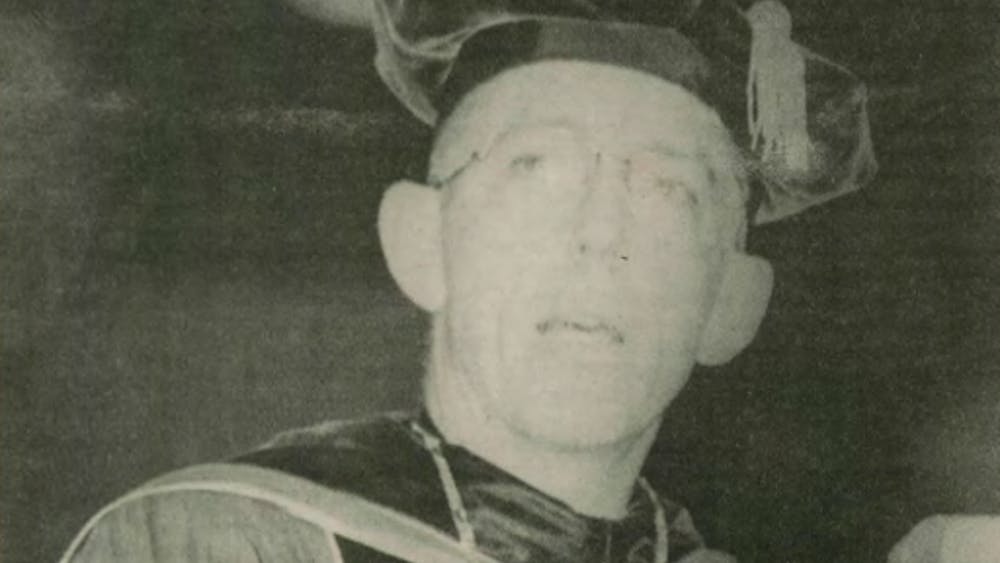In this episode of The Recap, host John Salem speaks about the winners of Saint Mary's Student Government Election, and discusses each platform's goals. Additionally, he talks about South Bend's recent efforts to get local teachers vaccinated, and closes with a discussion about a recent lecture given by Ai-jen Poo at Notre Dame's Liu Institute for Asia and Asian Studies.
[audio mp3="https://ndsmcobserver.com/wp-content/uploads/2021/03/1615578335-b57cf81de455a16.mp3"][/audio]
The Recap is available to stream onAnchor,Breaker,Google Podcasts,RadioPublic andSpotify.
John Salem: From the News department of The Observer, this is The Recap. I’m John Salem, and I’ll be hosting this episode of The Observer’s news podcast — serving Notre Dame, Saint Mary’s and Holy Cross.
To start this episode, let’s take a look at the COVID-19 statistics here on campus, and what changes might occur because of them. As of Friday, March 12, Notre Dame has administered 90,605 tests and had 979 confirmed cases of the virus. Our seven day moving average has remained rather steady, currently sitting at an average of 17.7 new cases a day, with a positivity rate of 0.9%. As you might have read, a number of new guidelines went into effect Tuesday, March 9 as a response to the drop in case numbers. The new guidelines lessen restrictions on in-person club events and meetings. Specifically, clubs can reserve outdoor space for meetings, and can meet indoors as long as a HERE Ambassador is present.
Moving forward, let’s focus on the recently concluded student government election at Saint Mary’s. Eleanor Hanson and Adriana Salgado have won the election, and will serve as Saint Mary’s president and vice president respectively, for the 2021-2022 school year. Hanson is a communication studies major from Atlanta, Ga., and Salgado is a communication studies major from Indianapolis, Ind.
First and foremost, the pair want to figure out what their fellow students would like to see done for the upcoming school year, emphasizing email surveys as a way to allow all Saint Mary’s women to be heard.Hanson and Salgado also want to create more mentorship opportunities for students of diverse backgrounds, specifically first-generation students and those with disabilities. The duo is extremely willing to have tough conversations with the administration if it means improving the Saint Mary’s experience for all of her students. Finally, Hanson and Salgado strongly desire for an improved sustainability plan on campus, and seek to expand the school’s recycling program greatly.
Now, let’s move on to a story about local South Bend teachers receiving vaccinations for COVID-19.
Staff Writer Trinity Reilly reports.
Trinity Reilly: The state of Indiana had already opened vaccines to teachers over the age of 50. Sarah Wagoner, third grade teacher at Clay International Academy, said she and her colleagues discovered vaccines would be available to teachers under 50 on Tuesday, March 2.
John Salem: Wagoner had some trouble signing up for her vaccine due to some website troubles.
Sarah Wagoner: The websites weren’t updated, and you had to use either Meijer, Kroger or Walmart, and Walmart’s was definitely not functioning. Kroger’s appeared to function, and then it would just shut down, and Meijer’s just put you on a waitlist. So I wasn’t getting anywhere.
Trinity Reilly: Just a few days after the original vaccination announcement, though, on Thursday, Wagoner said, Clay International told its teachers that members of the Meijer vaccination team would come to the school. Teachers were invited to sign up for a two-hour time slot throughout the day and show up any time during that period to get the vaccine.
Sarah Wagoner: It was the smoothest event, I don’t think I waited in line more than 10 minutes. I got my shot, then I sat and waited my 15 minutes to make sure I didn’t have any kind of reaction, and off we went — it was pretty cool.
John Salem: Wagoner wasn’t the only teacher vaccinated at Meijer that day, Michelle Conway, a second grade teacher at Kennedy Academy, also received her first dose.
Michelle Conway: I just went because someone told me on a whim, so I went on my way home and it worked out.
Trinity Reilly: While Wagoner and Conway both said having the vaccine makes them feel safer, they said they do not ultimately believe teacher vaccinations will have any significant effect on COVID classroom protocols.
Michelle Conway: I don’t think it really changes too much, but I think it gives you a little more level of comfort, just knowing that you’ve been vaccinated, and so if anybody were to bring something in from the outside, you would be more protected.
John Salem: Our last story of the day takes a look at a recent lecture hosted by Notre Dame’s Liu Institute for Asia and Asian Studies Thursday evening. The lecture was given by Ai-jen Poo, and focused on the fight for domestic workers’ rights in America.
When she was a student, Poo became involved in an organization called the Committee Against Anti-Asian Violence, which was founded in response to the wave of anti-Asian violence in the 1980s. She said her experiences fighting for justice as a student catalyzed her interest in activism and eventually led her to organizing domestic workers in the Asian community and beyond.
As she began working with Filipino domestic workers, Poo learned domestic workers in the United States had far less protections than domestic workers in other countries and faced significant exclusions from basic labor rights.
Ai-jen Poo: Domestic workers were excluded from our foundational labor laws, and that exclusion set the tone for how domestic workers would be treated in our law and policy for generations.
John Salem: According to Poo, because the first domestic workers in the U.S.were made up of enslaved African women, many southern congressmen refused to support fair labor laws for the workers.
Ai-jen Poo: When we take a step back what we see here is our laws and culture have essentially made invisible and vulnerable some of the most important work that happens in our economy and the people who do it.
John Salem: Poo said it has been challenging to formulate a way to advocate for domestic workers rights because domestic workers do not have communities in the same way other types of American workers do. The only way to overcome these obstacles is by building up power in three distinct areas: economic power, narrative power and political power.
Although Poo said there is a tremendous amount of suffering in the country right now, she thinks the pandemic can help the country reimagine laws and policies to benefit workers.
Ai-jen Poo: To me, that’s about making sure that we have good jobs, that we have a minimum wage that people can survive on, that everyone has access to a safety net and basic benefits and it also means that we have a strong care infrastructure that imagines if at every stage of life, we could take care of our families and the people that we love, and know that our caregivers were well compensated and secure for taking care of their own families too.
John Salem: Poo ended her lecture by recognizing how important essential workers have been throughout this pandemic, and expressed hope that the shift in how we view these jobs will remain after the era of COVID-19.
That’s it for this episode of The Recap. Thanks for listening. Join us weekly for summaries of the major headlines on Notre Dame, Saint Mary’s and Holy Cross’ campuses. Thank you to Genevieve Coleman, Serena Zacharias and Trinity Riley. This has been John Salem for The Observer.
Music by Ryan Neff
Read More
Trending









